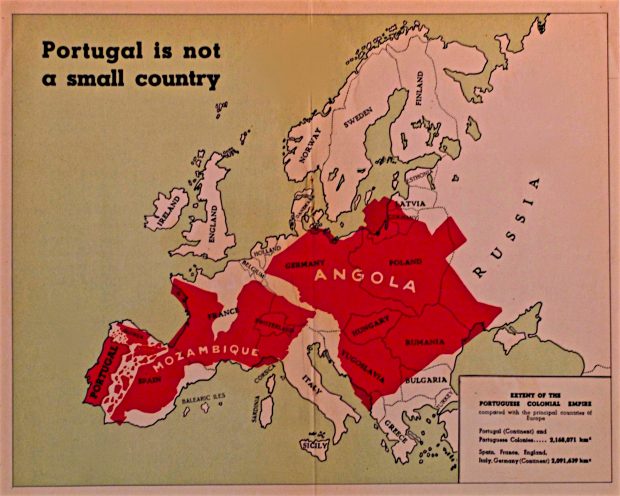Propaganda is the art of making a small truth into a big lie.
Propaganda is the kryptonite of the masses, those who are most prone to its manipulation. In this blog post, the focus is on presenting it as a keystone of visual literacy. 'Selective truth' has been a natural tool for visual designers or artists since the beginning of time. We emphasise, exaggerate, embellish all the time when making or designing. We use this principle all the time- 'of taking truth' and using it to help us communicate. Of course, there can be a dark side to this principle. Anything can be twisted to serve great evil, especially neutral principles.
In the hands of minds bent on manipulating the masses to their own agenda propaganda has proven to be an effective tool. Just look at the recent rise of populist movements. Examining the origins of these recent waves we find what the populist themselves have termed ' the elite', a small group of privileged people, '*wagging the dog'.
Populist movements don't only arise from a 'true' reaction against social evil or inequality but have also been manufactured using valid discontent present in society. For example, if we lay down our own opinions on decisive issues such as the recent Brexit campaign, the rise of a 'Right wing' Republicanism, or other populist waves seemingly blooming all over the globe. We can begin to see how these movements have been driven by clever 'elites' wanting to push forward their ideology or make a quick buck by presenting themselves as part of the masses. They have accomplished control using propaganda.
Please bear with me if you were for Brexit. I'm not saying you were wrong for wanting to leave. What I am saying is that there was a group of highly focused people who drove this change. They used propaganda to achieve their aims. The authors of their campaign managed to mix up the very real discontent most of the country was feeling about social inequality and their fear about future prospects for localised people groups (already present in the masses and not related to EU membership), with being part of the European Union. They did this by leaning into a more right-wing philosophy than most would be comfortable in admitting. It was a very clever campaign.
Whether it will be a good or bad thing for the UK to have left the EU is debatable and wildly depends on one's point of view. It might end up being a good thing for the UK to have left the EU, but for someone with a strong Nationalist ideology, it will seem like a good thing regardless of whether Great Britain prospers or falters.
Meanwhile, those motivated only by removing social or financial inequality might be sorely disappointed if we are plunged into recession instead. Let me add that we are 'a clever people' and can make success and happiness regardless. However, the fact remains that our EU membership was not to blame for the social and economic inequality around us. Going into the future we can hope for the best.
Hitler and Mussolini are prime historical examples of using propaganda to control the perceptions of 'the people'. Whilst they did not invent it they certainly managed to weaponise it to control large groups of humans. This is what Hitler wrote in Mein Kampf (My Struggle), "[I]n the big lie there is always certain force of credibility; because the broad masses of a nation are always more easily corrupted in the deeper strata of their emotional nature than consciously or voluntarily; and thus in the primitive simplicity of their minds they more readily fall victims to the big lie than the small lie, since they themselves often tell small lies in little matters but would be ashamed to resort to large-scale falsehoods."... He continues elsewhere: "It would never come into their heads to fabricate colossal untruths, and they would not believe that others could have the impudence to distort the truth so infamously." This, we can clearly see had become one of Trump's main moves in his playbook near the end of his term. He went from one outrageous lie to another without a single blush. Jospeh Goebbels (Nazi Propaganda Minister) made Hitler's theory into Nazi policy: "Make the lie big, make it simple, keep saying it, and eventually they will believe it."
This is an art and design blog, however, so even though art and design touch all spheres of life and experience, and it is important for designers to have wide influences, knowledge and thinking, I would rather not go into too many political discussions. Only enough to illustrate this visual literacy principle. The main takeaway in the previous paragraphs was: Ask questions! Think about what you are consuming! And understand that nothing is being innocently served to us, there is a message, an agenda!
Propaganda can be very low brow - a dubious headline in a local rag or a tweet by a seedy politician. Propaganda can also ascend to lofty heights of clever design or art. Although evil men and women have at times used it to drive their agendas it has also been used for good. I use the words 'good' and 'evil' knowing that these concepts can be very relative at times. However, undoubtedly there are some things that 'we can all agree' are absolute in their deplorability.
Here is a mix of Propaganda posters and images I found out there on the web:
Cool war time leaflet, propaganda can be informational and nudge people into doing the right thing or educate them about issues.

Above: This print is from the English civil war, Prince Rupert.

Above: Love this! Super imposed shapes of Portugal and its colonies at the time. Showing that the small nation was actually bigger than its own borders. During Brexit I saw a similar poster, now showing those countries within the language influence and sphere.



 \
\



0 comments